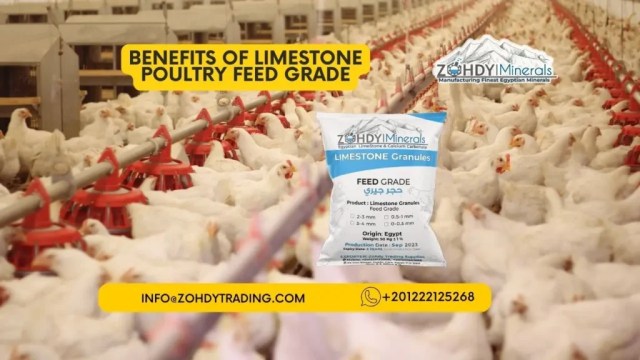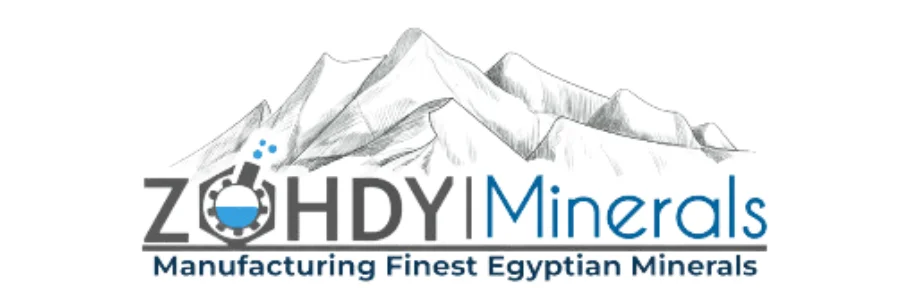Limestone Poultry Feed Grade: An Essential Ingredient for Healthy Chickens
In the world of poultry farming, ensuring the health and well-being of your chickens is of paramount importance. One key element that plays a crucial role in achieving this goal is the use of high-quality poultry feed. Among the various components that make up poultry feed, limestone poultry feed grade stands out as an essential ingredient with a wide range of benefits for your feathered friends.
Table of Contents Limestone Poultry Feed Grade
1-The Role of Limestone in Poultry Feed Grade
Understanding Limestone as a Calcium Source
Limestone is an excellent source of calcium, a vital mineral for poultry. Chickens require calcium for the formation of strong eggshells and overall skeletal health. The presence of limestone in their diet ensures that they receive an adequate supply of this essential nutrient.
2-Benefits of Limestone Poultry Feed Grade

2-1. Strong Eggshells
Limestone contributes to the development of robust eggshells, reducing the likelihood of breakage and ensuring the quality of eggs produced.
2-2. Skeletal Health
Adequate calcium intake through limestone in poultry feed supports healthy bone development in chickens, preventing conditions like rickets.
2-3. Improved Egg Production
Healthy hens produce more eggs, and limestone plays a role in boosting their reproductive health.
3.About Limestone in Poultry Feed
3-1: Can I use any type of limestone for poultry feed?

Certainly! When it comes to using limestone for poultry feed, not all types of limestone are suitable. It’s essential to use high-quality limestone poultry feed grade. This specific grade of limestone is carefully processed to meet the dietary needs of poultry, ensuring it is safe and beneficial for your chickens. Using the right type of limestone will provide the necessary calcium without any impurities or contaminants that could be harmful to your flock. So, to ensure the health and well-being of your chickens, always opt for limestone poultry feed grade in their diet.
3-2: How should I incorporate limestone into the feed?
Incorporating limestone into your poultry feed is a crucial step to ensure your chickens receive the necessary calcium intake. Here’s how you can do it:
- Consult with a Poultry Nutritionist: It’s essential to seek guidance from a poultry nutritionist or an expert in the field. They can provide you with specific recommendations based on the age, breed, and dietary requirements of your chickens.
- Feed Formulation: Limestone should be added during the feed formulation process. The nutritionist will calculate the exact amount of limestone needed to meet your chickens’ calcium requirements.
- Even Distribution: Ensure that the limestone is evenly distributed throughout the feed mixture. This can be achieved by mixing it thoroughly with other feed ingredients.
- Regular Monitoring: Keep track of your chickens’ calcium intake and monitor their health. If you notice any issues, consult with your nutritionist to make necessary adjustments to the feed.
Remember that the proper incorporation of limestone into the feed is essential to maintain the health of your chickens and support their eggshell development. Consulting with a professional ensures that you provide the right amount of limestone for your specific flock.
3-3: Are there any side effects of giving too much limestone to chickens?

Yes, giving too much limestone to chickens can have adverse effects on their health. While limestone is a valuable source of calcium, excess calcium intake can lead to several issues:
- Urinary Calculi: Excessive calcium can result in the formation of urinary calculi (stones) in chickens. These calculi can obstruct the urinary tract, causing discomfort and potentially life-threatening complications.
- Reduced Egg Production: Surplus calcium can disrupt the hormonal balance in hens, leading to a decrease in egg production. This is counterproductive if your goal is to maximize egg yield.
- Impaired Mineral Absorption: Excess calcium can interfere with the absorption of other essential minerals, such as phosphorus and magnesium, leading to mineral imbalances.
- Kidney Damage: Chickens that receive too much calcium may experience kidney damage or dysfunction due to the increased workload of filtering excess calcium from the bloodstream.
- Bone Abnormalities: While calcium is crucial for bone health, excessive calcium can lead to imbalances and bone deformities in chickens, such as weak and brittle bones.
To prevent these side effects, it’s crucial to follow recommended guidelines for calcium supplementation in your poultry feed. Consulting with a poultry nutritionist or veterinarian is advisable to ensure your chickens’ dietary needs are met without overdoing it with calcium. Maintaining the right balance is key to keeping your chickens healthy and productive.
3-4: Can limestone be replaced with other calcium sources?
Limestone is a reliable and cost-effective calcium source, but alternatives can be explored with professional advice.
Yes, limestone is a reliable and commonly used calcium source in poultry feed, but it can be replaced with other calcium sources if necessary. The choice of alternative calcium sources depends on factors such as cost, availability, and specific dietary requirements. Here are some alternative calcium sources that can be considered:
- Oyster Shell: Crushed oyster shell is a popular alternative to limestone. It provides a good source of calcium and is often used for layers to ensure strong eggshells.
- Calcium Carbonate: Calcium carbonate is another viable option, available in various forms. It’s often used in feed formulations to provide calcium.
- Calcium Phosphate: Dicalcium phosphate or monocalcium phosphate can also be used to supply calcium while balancing phosphorus levels in the feed.
- Gypsum: Gypsum is an alternative calcium source, though it may be less common in poultry feed formulations.
- Calcium Citrate: This form of calcium is used in some specialized feeds, but it may be more expensive compared to other sources.
When considering a replacement for limestone, it’s important to consult with a poultry nutritionist or expert who can assess your specific flock’s needs and recommend the most suitable calcium source. The choice should be based on maintaining the correct calcium-to-phosphorus ratio and ensuring the overall nutritional balance in your chickens’ diet.
3-5: What’s the ideal calcium-to-phosphorus ratio in poultry feed?
The ideal calcium-to-phosphorus ratio in poultry feed typically falls in the range of 2:1 to 3:1. This ratio ensures that chickens receive an adequate supply of calcium for eggshell formation and bone health while maintaining the right balance with phosphorus.
A calcium-to-phosphorus ratio of 2:1 to 3:1 is generally recommended for most poultry, but it’s essential to consider the specific needs of your flock, which can vary based on factors such as the age and type of birds you’re raising. Different life stages and breeds may require slight adjustments to this ratio, and consulting with a poultry nutritionist is advisable to fine-tune the dietary composition to meet the unique requirements of your chickens.
Conclusion
Limestone poultry feed grade is an invaluable component in the quest for healthy and productive chickens. By providing essential calcium, it supports the formation of robust eggshells, enhances skeletal health, and ultimately leads to improved egg production. This critical ingredient ensures that your chickens receive the necessary nutrients for a happy and thriving flock.
To order send us





